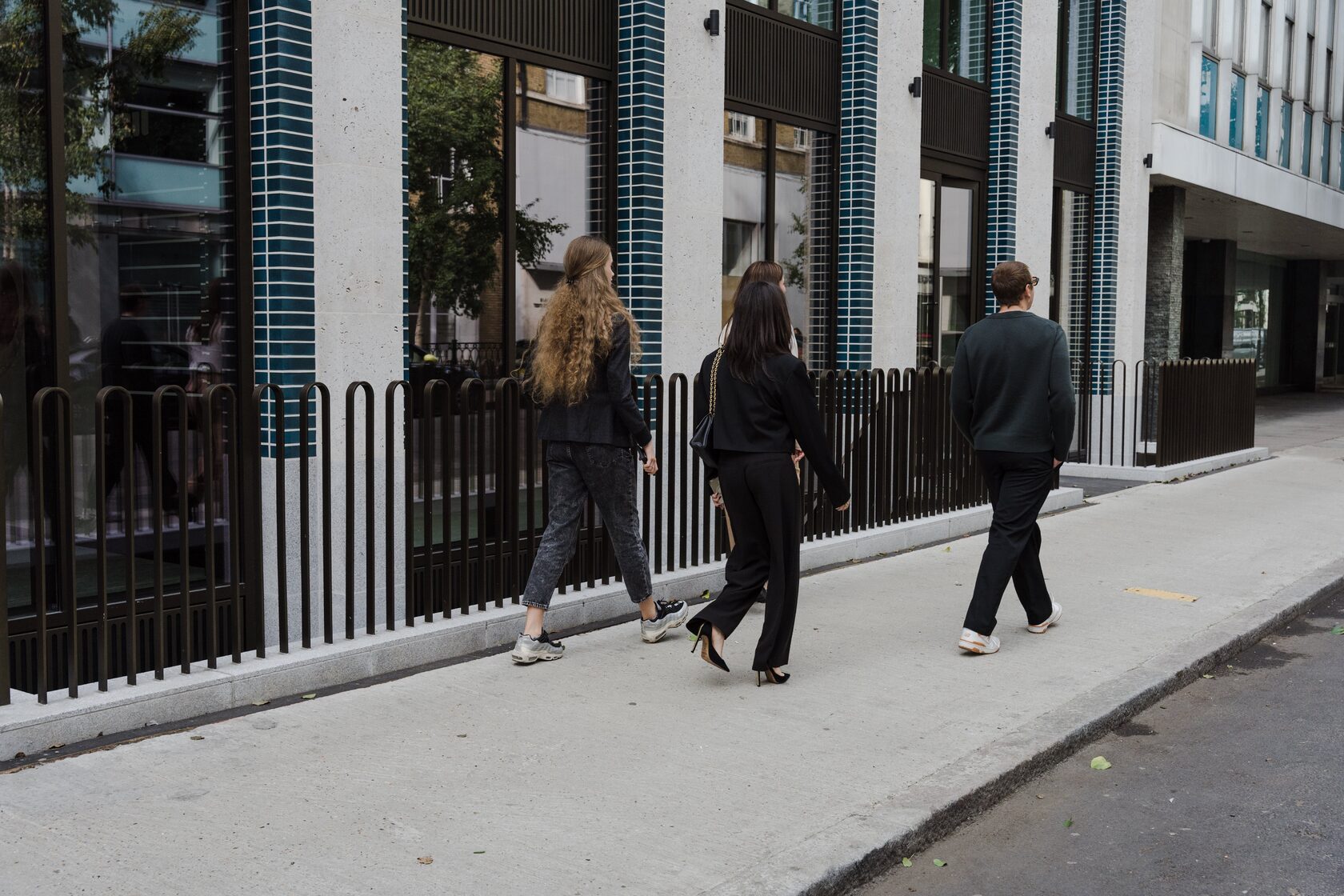As part of my Neuroscience bachelor's at the University of Bristol, I was fortunate to be among the first few cohorts enrolled on the radically novel Science of Happiness (SOH) course. I initially thought that this module would delve into neuronal processes underlying the emotion of happiness, but what I uncovered later was a transformative approach spanning psychological, social, and philosophical domains.
For Clever Magazine, I sit down with Professor Bruce Hood, Canadian-born British experimental psychologist and philosopher, known for his research in developmental psychology. He earned his PhD from the University of Cambridge, and after completing his studies, he moved to the United States, where he served as a visiting professor at MIT and later held a faculty position at Harvard University.
His work spans various topics in cognitive science, including how children and adults perceive the world and form beliefs. He specialises in developmental cognitive neuroscience and leads the Science of Happiness at the University of Bristol.
I contrast Bruce Hood’s course delivery with insights from current university students on their state of mental wellbeing to uncover the criticality of Science of Happiness among HE institutions in the UK.

“I haven't particularly focused on my mental health, which might be influenced by the cultural environment and upbringing I experienced. Growing up, mental health wasn't a topic that was taken seriously or given much attention, so it wasn't something I learned to prioritise. As a result, I haven't engaged in practices to manage my mental well-being. This lack of concern for mental health has persisted into my university years, where I haven't developed any consistent habits or practices to maintain my mental wellness.” - Student.
Concern for individual mental wellbeing is a relatively modern societal spotlight that still remains relatively inaccessible to the majority of UK students, with wellbeing support only delivered on-demand at universities. Seeking such support is more commonly incentivised at critical times of mental frailty, further discouraged by inadequate social stigmas. The lack of awareness for mental wellbeing is greater among migrants from countries where mental wellbeing is an even lesser cultural priority. The Science of Happiness, however, aims to deliver fundamental understanding about individual mental health for all students.
“The Science of Happiness (SOH) is an academic course about the psychology of mental well-being that combines theory with practice. It covers perspectives including psychology, physiology, neuroscience and philosophy. It is not intended as a clinical intervention but rather as a general introduction, which has been shown to improve mental well-being by about 10-15% on average among the students who take the course.” - Bruce.
The module teaches how we define happiness and the cognitive biases that stand in the way of us acquiring it. Most importantly, it carries a practical element that brilliantly incentivises collaboration and application of learned theses. For example, one of the wellbeing practices that I learnt was Savouring. Savouring aims to overcome the cognitive Negativity Bias we are all prone to through a simple journaling exercise. The practice of noting experiences allows one to evaluate the day's gist sensibly rather than let a mishap ruin it. Module leaders monitor students' journals and encourage them to consolidate best practices into publicly-oriented wellness promotions. Organised into Happiness Hubs, collaborative teams from my year have spun out a Health and Wellbeing Instagram channel, a Happiness Cookbook, and a wellness digital issue.
What turned out to be so radically novel about this course is that the University of Bristol is the only HE provider in the UK that delivers anything of the sort. Traditionally, attention to student wellbeing is only given by universities at request, offering highly personal services such as Student Counselling and Disability and Learning Support.
What turned out to be so radically novel about this course is that the University of Bristol is the only HE provider in the UK that delivers anything of the sort. Traditionally, attention to student wellbeing is only given by universities at request, offering highly personal services such as Student Counselling and Disability and Learning Support.
“I haven't been able to identify when I might need such help or understand how it could benefit me. The lack of basic knowledge about mental wellbeing has made it difficult for me to recognise when to seek assistance.
Given this context, I believe that general education about mental wellbeing is crucial at the university level, similar to how SexEd is considered essential. Many students, including myself, may lack a fundamental understanding of mental health, which can prevent them from seeking help when needed. If there were more education on this topic, it might help students identify when they need support and understand the resources available to them, ultimately promoting a healthier student community.” - Student.

With the SOH course, the University of Bristol has managed to implement a maximally impactful combination of both approaches:
“Student Wellbeing Support is a professional service for students struggling with their mental health and, as such, is clinically oriented to help students. At Bristol, they co-exist as we do not claim to help those with clinical problems. That said, we signpost students to Student Wellbeing Support if they are struggling, and we monitor their attendance, behaviour and written journals weekly to check for any indicators that they may be struggling. This, in effect, is an early warning system that may identify and help students before they reach a crisis point, which is often too late.” - Bruce.
The University’s strategy is undoubtedly effective. It came at a critical moment when lockdown measures significantly impacted the COVID cohort’s sociability.
“The disruption of regular schedules due to online learning negatively affected my self-discipline. This lack of structure diminished my productivity and academic success, leading to feelings of depression and apathy. Adjusting back to normal life after the peak of the pandemic took me about six months, after which I no longer felt any lingering effects from the pandemic. Nonetheless, the initial disruption had a lasting impact on my approach to studies and social interactions.” - Student.
Arguably, general wellbeing education is even more critical now that the world is changing so fast it sends heads spinning with FOMO. The average consumer is growing greedier for abundance and there is increasing pressure to stay ahead of the trends to achieve that. If we were to weigh the world in “happiness,” how happy are we really today?
“In general, life is getting better as we have more education, more technology, fewer conflicts and better healthcare. All these factors impact happiness, so I would argue that life is better. However, happiness is a relative concept, so even as our situation improves, people can still feel unhappy depending on which comparisons they draw. For example, fifty years ago, hot showers were a luxury in the UK. Now, they are standard in most homes, but we don’t consider ourselves fortunate. Likewise, 150 years ago, childbirth was associated with an increased risk of death for mothers and babies, but such deaths are a rarity today in the UK. In general, people tend not to remember the past but rather compare themselves to others in the current situation; moreover, draw those comparisons upwards towards those who are doing better.” - Bruce.

The ups and downs people encounter seem to be amplified and exposed by social media, promoting competition for lifestyle. Being exposed to these social norms as a student, moreover, makes it more difficult to attribute emotions to events in your control.
“I think I need to be clear about the relationship between social media and mental health as there is currently a major drive to regulate it, which I don’t think would work. Some have even claimed that social media is rewiring our children’s brains to make them more unhappy. The trouble with this claim is that it is not clear whether the rise in mental problems is because social media caused the problem or, rather, it simply raised awareness of mental health issues, leading to increased self-diagnosis, reporting and a corresponding demand for services and treatment.
Increased awareness may also have biassed individuals to interpret any normal variations in mental well-being as being a disorder which then generates self-fulfilling behaviours. For example, most of us experience fluctuating levels of stress in our daily lives, but if I interpret this as anxiety (because I have heard so much about it on social media), I may avoid social encounters, which increases my social anxiety arising from my self-imposed isolation. Social media may be problematic for some but not all, and not because it causes unhappiness, but rather because it amplifies the impact of pre-existing developmental factors that have always increased mental health vulnerability such as social comparisons and establishing relationships.” - Bruce.
As students near the end of their degrees and swap out Instagram for LinkedIn, social comparisons expand from parameters like likes and comments to profile views, job candidate comparisons, skills and qualifications matching reports. Yet, LinkedIn is only a small component of the professional world of work, where individual mental wellbeing is hardly ever accented, less so among student jobs. From the research conducted by the faculty on the outcomes of SOH, Bruce and his team found that 'over the longer term, the positive benefits we generate during the course, and the two months after, are lost within a year unless the students maintain some of the recommended activities.' So, how can employers ensure adequate wellbeing practices are carried over from university?
“This is a more difficult problem to solve because the solution must come from within the individual. You cannot make someone happier by forcing them to engage in the sorts of activities we recommend. Remember, I claim that the secret to becoming happier is changing one’s outlook from an overly egocentric perspective to a more allocentric or other-focused one. This transition must occur as a natural consequence of the environment and circumstances. If we can encourage less individualism and competition in the workplace and more collegiate cooperation, I think workers would become happier and counter-intuitively more productive. In the past, many managers thought competition was good for productivity, but I think this view is short-sighted and limited. Happier workforces are more productive as a whole compared to environments where fewer workers are competitive. They may be more productive, but overall, they are less happy because they are so egocentric that they cannot benefit from the social rewards of working in a group.” - Bruce
The University of Bristol has enjoyed enormous success in popularising the Science of Happiness institution-wide, reinforcing the importance of wellbeing and supporting it among its students. Now, with five years of research on this course’s outcomes behind them, they are making headlines, swaying other HE institutions to adopt similar programmes. The one thing I have carried with me since the start of the course is that everyone needs to complete it at some point. I came out of it happier then, and I am coming out of this interview happier now. It is a pleasure to speak with renowned figures truly concerned for human happiness.








